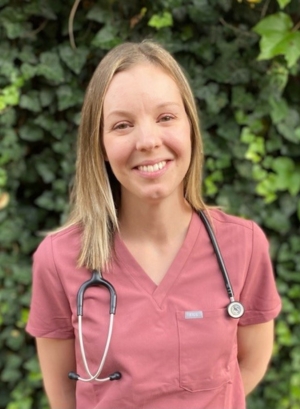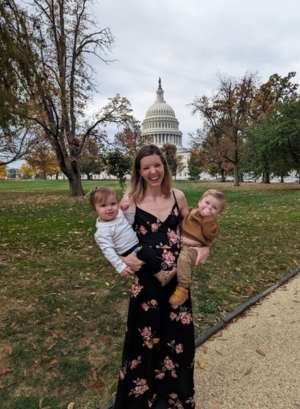-
-
- Council Members
- Role of Council Members
- Council meetings
- Council elections
- Previous election results
- Dr Louise Allum
- Dr Sam Bescoby
- Dr Andrew Clemence
- Dr Tshidi Gardiner
- Dr Reginald Godwin
- Paddy Gordon
- Dr Danielle Greenberg
- Dr Gerard Henry
- Dr Richard Hillman
- Dr Benjamin Kennedy
- Dr Tom Lonsdale
- Dr Darren Partridge
- Martin Peaty
- Alison Price
- Dr Peter Robinson
- Dr Jennifer Simmons
- Dr Sadie Spencer
- Dr Mary Thomas
- William Wilkinson
- Dr Lara Wilson
- Past-Presidents
-
- Standards Committee
- Advancement of the Professions Committee
- Audit and Risk Committee
- Education Committee
- Disciplinary Committee
- Charter Case Committee
- Preliminary Investigation Committee and Disciplinary Committee Liaison Committee
- Registration Committee
- Preliminary Investigation Committee
- Paper classification: some definitions
-
-
-
-
-
- About extra-mural studies (EMS)
- EMS requirements
- Information for vet students
- Information for EMS providers
- Information for vet schools
- Temporary EMS requirements
- Practice by students - regulations
- Health and safety on EMS placements
- EMS contacts and further guidance
- Extra-mural studies fit for the future
-
-
- Code of Professional Conduct for Veterinary Surgeons
- Code of Professional Conduct for Veterinary Nurses
- Contact the Advice Team
- XL Bully dog ban
- 'Under care' - guidance
- Advice on Schedule 3
- Controlled Drugs Guidance – A to Z
- Dealing with Difficult Situations webinar recordings
- FAQs – Common medicines pitfalls
- FAQs – Routine veterinary practice and clinical veterinary research
- FAQs – Advertising of practice names
- GDPR – RCVS information and Q&As
-
- Accrediting veterinary degrees
- Accrediting veterinary nursing qualifications
- Reasonable adjustments for student vets
- Health and disability in veterinary medicine study and practice
- The role of the veterinary schools and the RCVS
- Reasonable adjustments and the Equality Act 2010
- Reasonable adjustments and Day One Competences
- Examples of reasonable adjustments for vet students
- Annex
- Reasonable adjustments for student vets - summary
- Reasonable adjustments for student veterinary nurses
- Health and disability in veterinary nurse education and training
- Reasonable adjustments for students and the UK disability discrimination legislation
- Educational assessment of veterinary nurses
- Roles of key stakeholders in the application of reasonable adjustments
- Examples of reasonable adjustments for vet nurse students
- Embracing reasonable adjustments for student vet nurses - summary
- External review of the RCVS by ENQA
- Requirements for remote and online student assessments
International Member Spotlight: Sophie Kindberg-Hanlon MRCVS
After six years living and working in Washington, DC, Sophie Kindberg-Hanlon MRCVS discusses her life as a veterinary surgeon, and her work with the DC Board of Veterinary Medicine.
Tell us a bit about you, your organisation, and what it’s like working in the US.
 I work at Friendship Hospital for Animals in Washington, DC. The hospital offers a wide range of services, from primary care to emergency and speciality services.
I work at Friendship Hospital for Animals in Washington, DC. The hospital offers a wide range of services, from primary care to emergency and speciality services.
I’m a general surgeon within the Primary Care team at Friendship. I manage patients while working closely with specialty services to provide comprehensive care. General surgery performs a wide variety of procedures – from routine spays, to neuters, to foreign body removals and cystostomies.
DC is a very interesting city to live in. Government is engrained in the culture and I found myself increasingly interested in government policy and regulatory work.
In addition to working at Friendship, I serve on the DC Board of Veterinary Medicine, which is similar to the RCVS.
How does veterinary regulation work in the US?
It’s managed on a state-by-state basis. This is obviously quite different to the UK, where the RCVS oversees regulation nationally.
DC is a very small district, but it still has its own veterinary licensing board. It may function in a similar way to the RCVS, but it isn’t the same thing. We regulate the practise of veterinarians and veterinary establishments, evaluate people’s qualifications for licensure, and look at standards and procedures. We also issue licenses, carry out investigations, conduct hearings, and take disciplinary action.
We don’t have a prescribing cascade here, which usually surprises people when I explain the differences in working in the US.
Despite living in the US, I’m a proud member of the RCVS. I think a lot of US Boards look to the RCVS for inspiration for standard setting and professional accountability.
What area of veterinary medicine are you particularly interested in?
I have always enjoyed surgery. I completed a post-graduate certificate in small animal surgery when I was living in the UK. I still maintain that advanced practitioner status now, even though I live in the US, because I’m proud of it and worked hard for it. I really enjoyed working towards it, too. My particular interest is in minimally invasive procedures.
Why did you decide to move to the US?
I moved with my husband for his job and to try something different. I sat the North American Veterinary Licensing Examination (NAVLE) and applied for a US licence. The whole process was quite straightforward.
What does a typical workday look like?
I’m a creature of habit. I always start my day with coffee – I still go to Pret (which was a great discovery when I first moved)!
After a short metro ride to the hospital, the day starts with rounds where we review cases and plan for our day, then it’s either appointments or surgery, depending on my schedule. I see a variety of cases, from annual wellness visits to non-routine visits but it’s different from the UK in that we have a dedicated urgent care and critical care team – you don’t often see that separation in the UK.
One of my favourite aspects of my job is working with my veterinary assistant. She’s incredible. She scribes during consults, completes charges, adds prescriptions, liaises with clients, and administers treatments. She makes my day much more efficient and much less stressful and allows me to focus on my patients.
What do you enjoy most about your role?
I like working in primary care because there’s so much variety: no two days are the same.
I’m also proud to be working on legislative and regulatory efforts to improve animal welfare through my work with the DC Board. Currently, I’m proposing some changes banning cosmetic procedures like tail docking and ear cropping - practices that are sadly still performed in the US. I am really committed to improving animal welfare – it’s very rewarding.
Is veterinary medicine something you’ve always wanted to do?
Yes, absolutely! I wanted to be a vet ever since I was young. I love animals and feel so lucky that I get to work with them every day. It seems like a cliched statement but it’s true. I feel proud to advocate for them - and not just through clinical work but now through my involvement in regulation; improving the lives of animals matters to me.
What do you enjoy doing outside of work?

I have three children who keep me busy! I also love to run, and DC is fantastic for running. There are so many beautiful routes, along national landmarks. I run through Capitol Hill and down onto the National Mall every day. It’s wonderful.
I also love modern art, and DC has amazing art galleries that are open almost every day to the public.
Balancing work, hobbies and family is challenging but it’s interesting and fulfilling. I can’t imagine not being busy!
What advice would you give somebody looking to get into regulatory work?
It depends where you’re doing it, but I’d say that if you’re passionate about improving standards of care and animal welfare, then you should be involved! Attend board meetings and learn about how you can make an impact.
Published on 19 December 2024